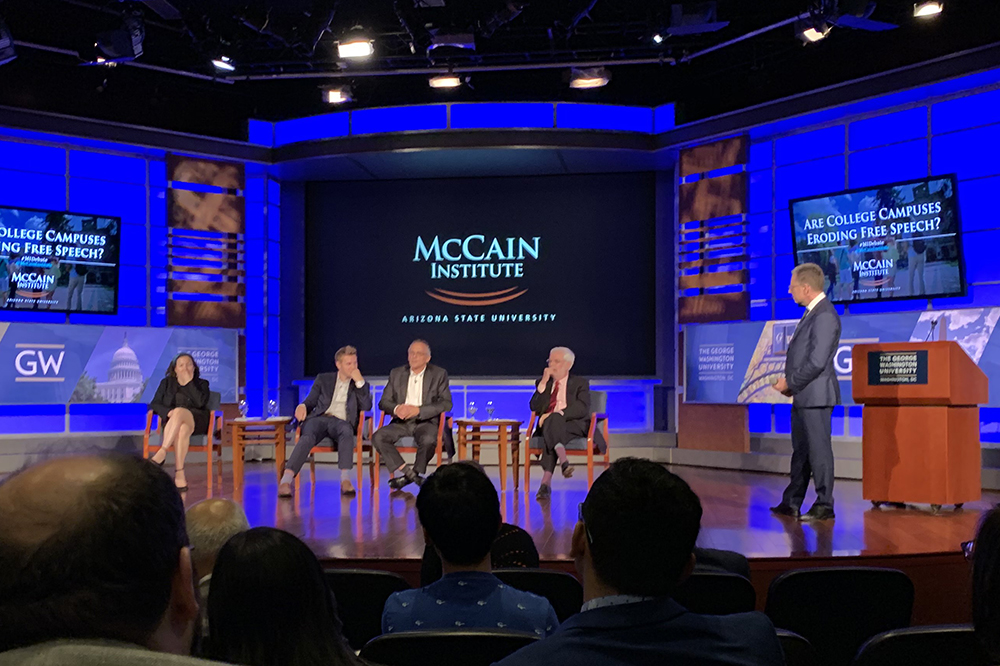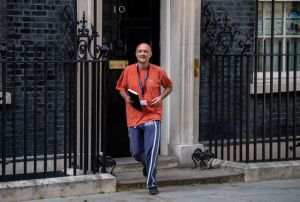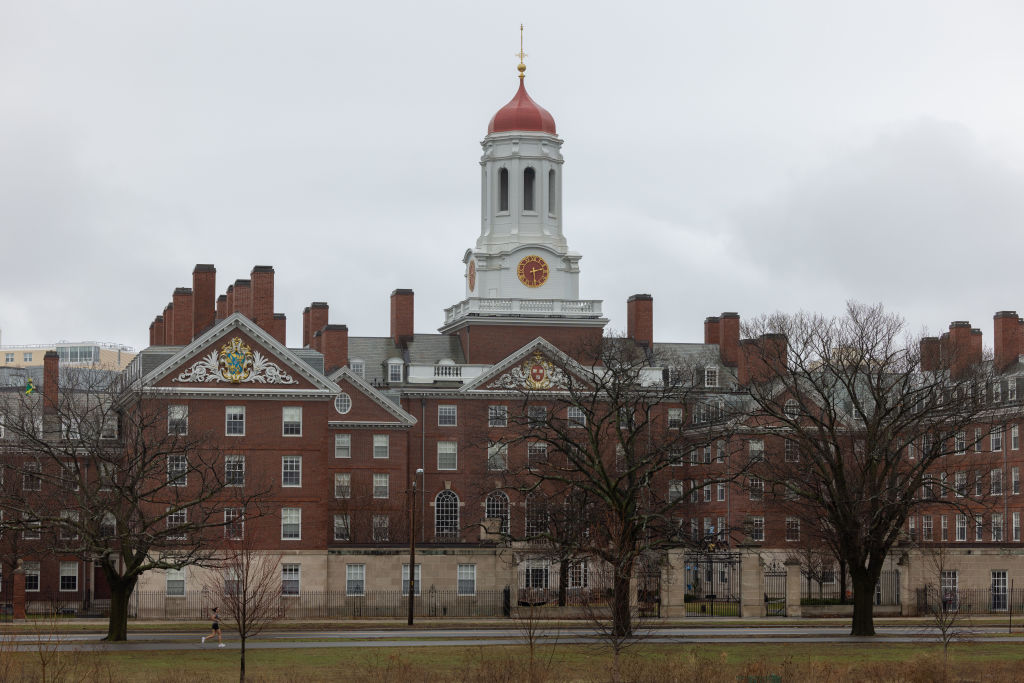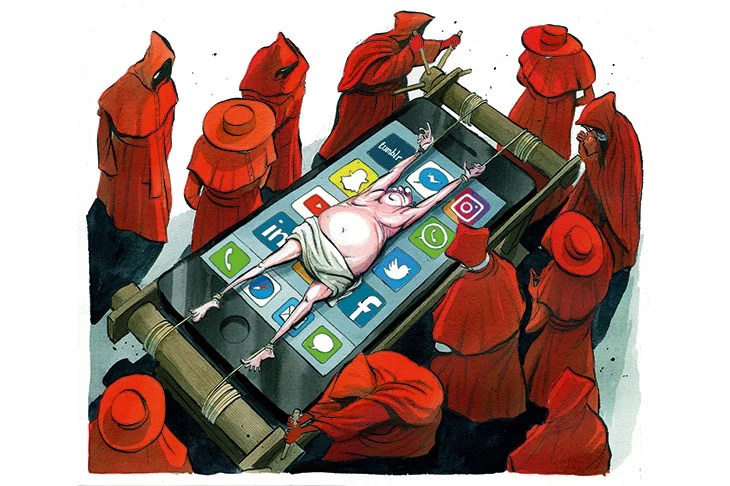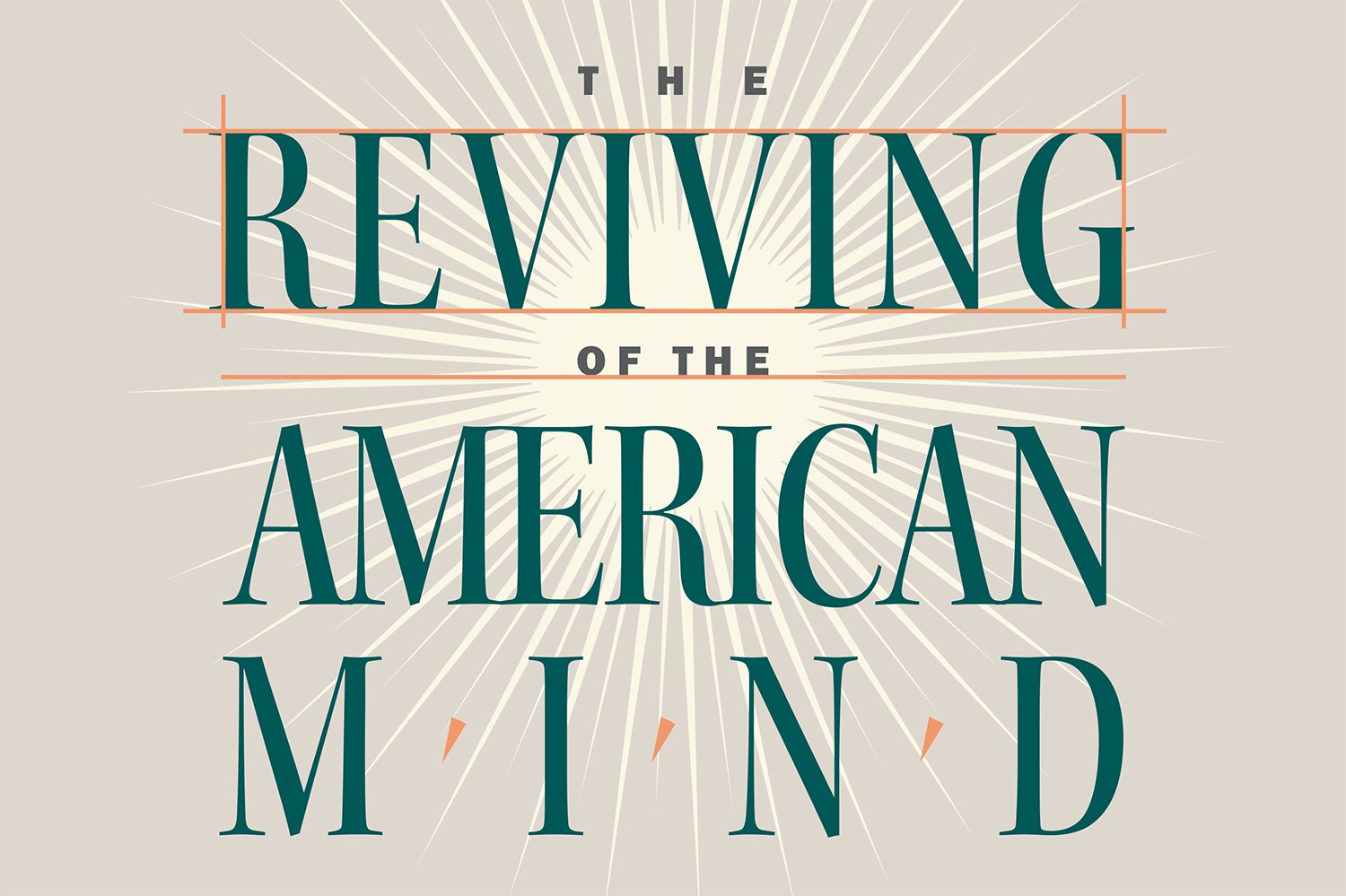Campus debates over free speech have raged through the pages of the New York Times and Wall Street Journal in recent years, as columnists turn their sights upon university quads. With all this attention, President Trump signed an executive order in March to limit funding for schools failing to support freedom of expression. To learn more, Cockburn stopped by a debate on Tuesday on the resolution, ‘Are college campuses eroding free speech?’.
Hosted by the McCain Institute, Robby Soave, associate editor of Reason, and FIRE vice president Samantha Harris argued in the affirmative, while Wesleyan University president Michael Roth and Georgetown’s Free Speech Project director Sanford Ungar argued — somewhat — against the proposal.
Both Harris and Soave argued university administrators are caving into the censorious demands of student activists. Listing instances of students reporting professors to university officials, Harris said, ‘Too many college administrators are allowing ill-informed student demands for censorship to erode free speech on campus.’ Adding to this, Soave argued a ‘compliance culture’ pervades many elite universities ‘where people are afraid to express controversial ideas because there will be retaliation from students or from administrators.’
In response, Ungar, a former president of Goucher College, claimed he didn’t ‘recognize this bleak landscape’ described by Soave and Harris, but still argued. ‘There is suppression of free speech across the political spectrum.’ Cockburn thinks Ungar was placed on the wrong side of the debate stage.
Adding to this firepower, Wesleyan president Michael Roth argued ‘students may have had a slight reduction of confidence in the doctrine of free speech because they have seen that doctrine used by ideologues to push a right-wing agenda that demonizes intellectuals and universities.’ While discussing the restrictive speech environment on many college campuses, Roth contributed this insight: ‘The real story,’ (opposed to the unreal story offered by Soave and Harris) ‘is the dramatic expansion of corporate control of amplifying speech in America.’ Apparently, Roth thinks principles of free speech are losing salience on college campuses because of…Citizens United?
In a comment to Cockburn after the debate, Soave said, ‘Mr Roth was projecting a bit — frustration with the Citizens United decision might have caused him to lose some faith in free speech, but for student-activists it is primarily a consequence of their expansive definition of safety.’ Cockburn thinks Roth, who wrote a book about Freud, should know a thing or two about projecting.
Got a tip for Cockburn? Email cockburn@spectator.us.



